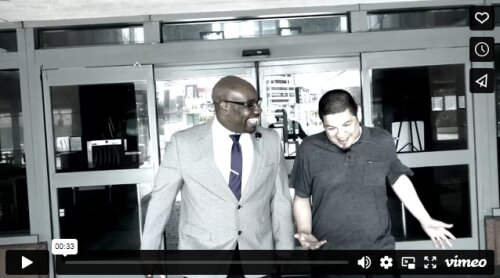Best Landlord & Tenant Lawyers in California
Share your needs with us, get contacted by law firms.
Free. Takes 2 min.
Free Guide to Hiring a Real Estate Lawyer
Or refine your search by selecting a city:
List of the best lawyers in California, United States
United States Landlord & Tenant Legal Questions answered by Lawyers
Browse our 2 legal questions about Landlord & Tenant in United States and read the lawyer answers, or ask your own questions for free.
- What is owner of condo units obligation as far as damage to the condo below their unit.
- The unit above my condo is managed by a Property Management company, and it was rented. During the time it was rented, there were water leaks that damaged my ceilings, and the Management Company. refuses to fix the ceiling so that it matches the rest of the ceiling. Even though... Read more →
-
Lawyer answer by Horus Legal Sulotion
Thank you for sharing the details of your situation. Based on the circumstances you described, you may have grounds to escalate the matter legally. You can file a case to request the appointment of a government engineer from Dubai Municipality...
Read full answer - How to protect property from squatters law
- Deed in my mom's name. She died 18 years ago. Son is named as administrator but not as owner. We live in USA so let Non relative live there for 45-50 year but had no formal contract. Let him live there free as long as he paid utilities and taxes.... Read more →
-
Lawyer answer by M BILAL ADVOCATES, CORPORATE & TAX CONSULTANTS
After completing probate to establish yourself as the legal heir, you can transfer the property title to your name and then grant them permission to reside there through a formal agreement. It is worthy to note that you can do...
Read full answer
About Landlord & Tenant Law in California, United States
Landlord and tenant law in California governs the legal relationship between property owners who rent or lease residential units and the people who occupy them. These laws set out the rights and responsibilities of both landlords and tenants, addressing issues such as security deposits, rent control, habitability, eviction processes, and fair housing practices. The purpose of these regulations is to ensure safe, fair, and stable housing for tenants while protecting the property interests of landlords.
Why You May Need a Lawyer
People may need legal help in landlord and tenant matters for a variety of reasons. Common situations include disputes over security deposits, disagreements about property repairs or habitability, issues involving illegal eviction or rent increases, and cases of discrimination. A lawyer can also be crucial if you are dealing with threats of eviction, navigating lease violations, or facing possible property damage claims. Legal counsel can help ensure your rights are protected, guide you through complex proceedings, and represent you in negotiations or court if necessary.
Local Laws Overview
California has some of the most detailed rental housing regulations in the United States. Key aspects include:
- Rent control ordinances in select cities, such as Los Angeles, San Francisco, and Oakland, limit how much and how often landlords can raise rent.
- The California statewide rent cap law limits annual rent increases on many residential properties built before 2005.
- Requirements for handling security deposits, which are generally limited to two months’ rent for unfurnished units or three months for furnished units, with specific deadlines for returns.
- Detailed eviction procedures, including notice requirements and protections for tenants against retaliation or wrongful eviction.
- Mandatory habitability standards ensuring that landlords keep rental units safe and livable, including necessary repairs and pest control.
- Anti-discrimination protections under both California and federal law prohibit landlords from refusing to rent based on race, gender, family status, religion, disability, or other protected characteristics.
Frequently Asked Questions
What rights do tenants have in California regarding property repairs?
Tenants have the right to a habitable and safe living environment. If a landlord refuses to make necessary repairs, tenants can request repairs in writing, and if the problem persists, may be able to reduce rent, make repairs and deduct the cost, or report the issue to local authorities.
How much can a landlord charge for a security deposit?
In California, a landlord may charge up to two months’ rent for an unfurnished unit or three months for a furnished unit as a security deposit.
When must a landlord return a security deposit?
A landlord must return the security deposit within 21 days after the tenant has moved out, minus any lawful deductions for unpaid rent, cleaning, or repairs beyond normal wear and tear.
Can a landlord evict a tenant without cause?
State law requires landlords to have a “just cause” for eviction if the tenant has been in the unit for more than 12 months, such as nonpayment of rent, lease violations, or property damage.
Are there limits on rent increases?
In many California cities with rent control, local ordinances limit how much and how often rent can be increased. The statewide rent cap restricts certain rent increases to 5 percent plus regional inflation, not to exceed 10 percent per year, for many older buildings.
What steps must a landlord follow to evict a tenant?
A landlord must provide the correct written notice (such as a 3-day notice to pay or quit) and, if the issue is not resolved, file an unlawful detainer lawsuit in court. Only a court order can legally evict a tenant.
Can a landlord refuse to rent to someone with children?
No, California’s fair housing laws prohibit discrimination against tenants based on familial status, which includes families with children.
What should tenants do if served with an eviction notice?
Tenants should read the notice carefully, respond within any stated timeframe, seek legal advice if unsure of their rights, and attend all court hearings if the landlord files an eviction lawsuit.
Can a landlord enter the rental unit without permission?
Landlords may enter a rental unit only for specific reasons, such as repairs or inspections, and usually must give at least 24 hours’ written notice, except in emergencies.
Is a lease agreement required to be in writing?
A written lease is required for rental agreements longer than one year. Month-to-month agreements can be oral, but having a written contract is recommended for clarity and legal protection.
Additional Resources
If you need more information or assistance with landlord and tenant matters in California, consider the following resources:
- California Department of Consumer Affairs - Publishes the “California Tenants - A Guide to Residential Tenants’ and Landlords’ Rights and Responsibilities”
- Local city or county rent boards
- Legal Aid Foundation of Los Angeles or similar legal aid organizations in your area
- California Courts Self-Help Center
- Fair Housing Councils, which provide advice on discrimination and fair housing issues
Next Steps
If you believe you need legal help for a landlord and tenant issue in California, you should start by gathering all related documents, such as your lease agreement, notices, written communications, and receipts. Consider reaching out to a local legal aid organization, tenant advocacy group, or a private attorney who specializes in landlord and tenant law. An initial consultation can help you understand your rights, identify your options, and plan for the best way forward. If you are facing eviction or an urgent dispute, act promptly to protect your interests, as deadlines in these matters can be very short.
Lawzana helps you find the best lawyers and law firms in California through a curated and pre-screened list of qualified legal professionals. Our platform offers rankings and detailed profiles of attorneys and law firms, allowing you to compare based on practice areas, including Landlord & Tenant, experience, and client feedback.
Each profile includes a description of the firm's areas of practice, client reviews, team members and partners, year of establishment, spoken languages, office locations, contact information, social media presence, and any published articles or resources. Most firms on our platform speak English and are experienced in both local and international legal matters.
Get a quote from top-rated law firms in California, United States — quickly, securely, and without unnecessary hassle.
Disclaimer:
The information provided on this page is for general informational purposes only and does not constitute legal advice. While we strive to ensure the accuracy and relevance of the content, legal information may change over time, and interpretations of the law can vary. You should always consult with a qualified legal professional for advice specific to your situation.
We disclaim all liability for actions taken or not taken based on the content of this page. If you believe any information is incorrect or outdated, please contact us, and we will review and update it where appropriate.
Browse landlord & tenant law firms by city in California
Refine your search by selecting a city.












